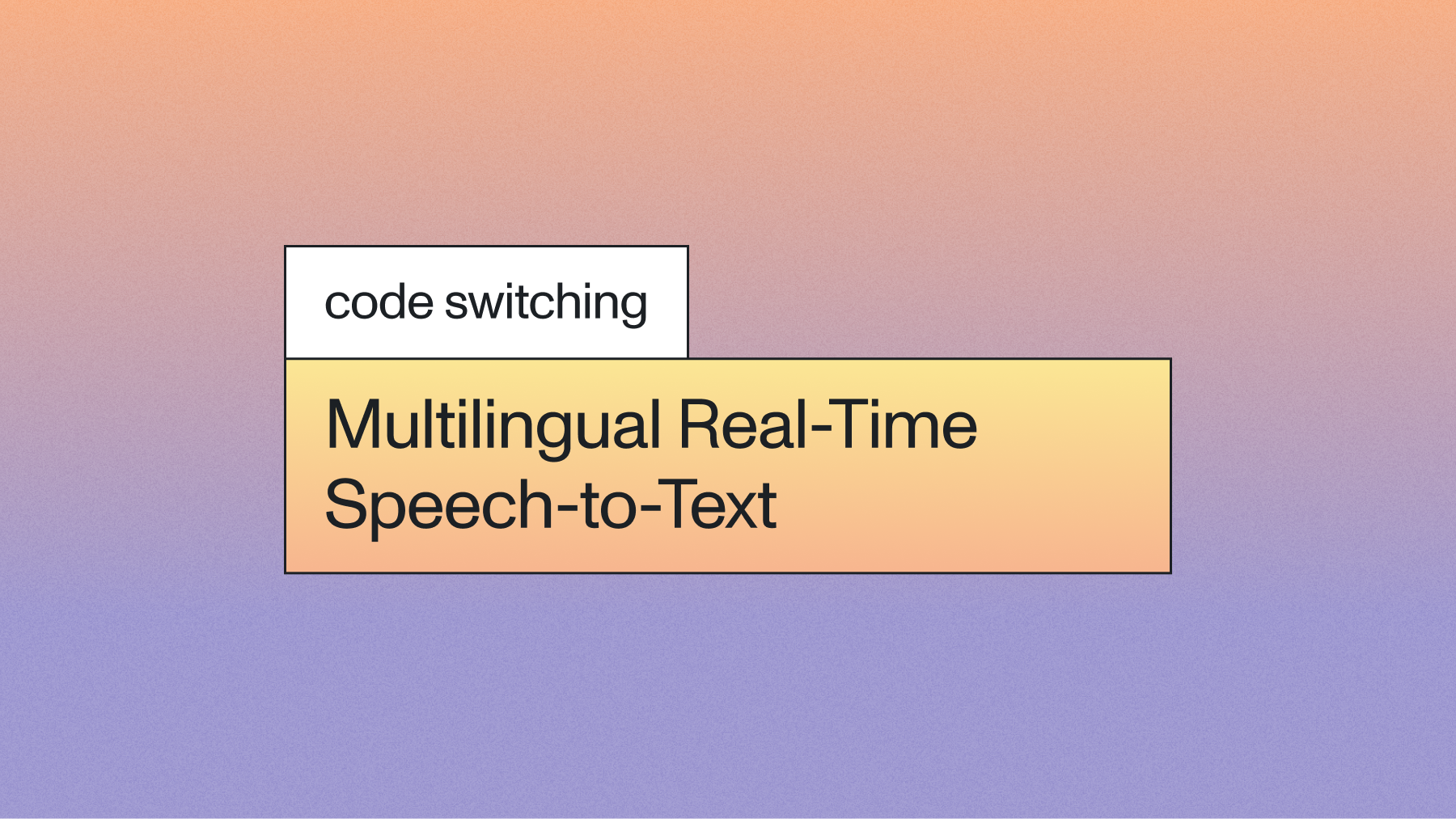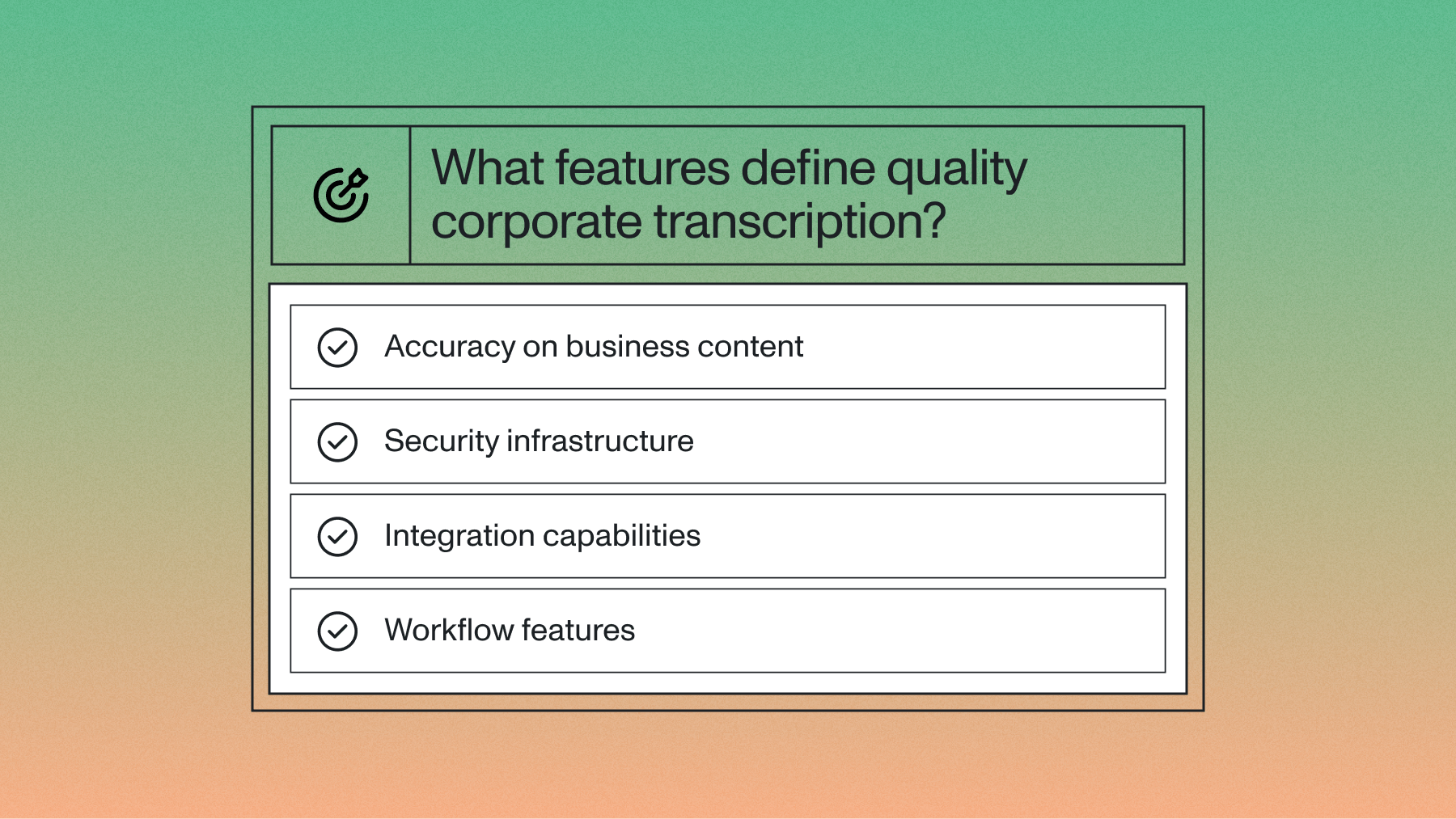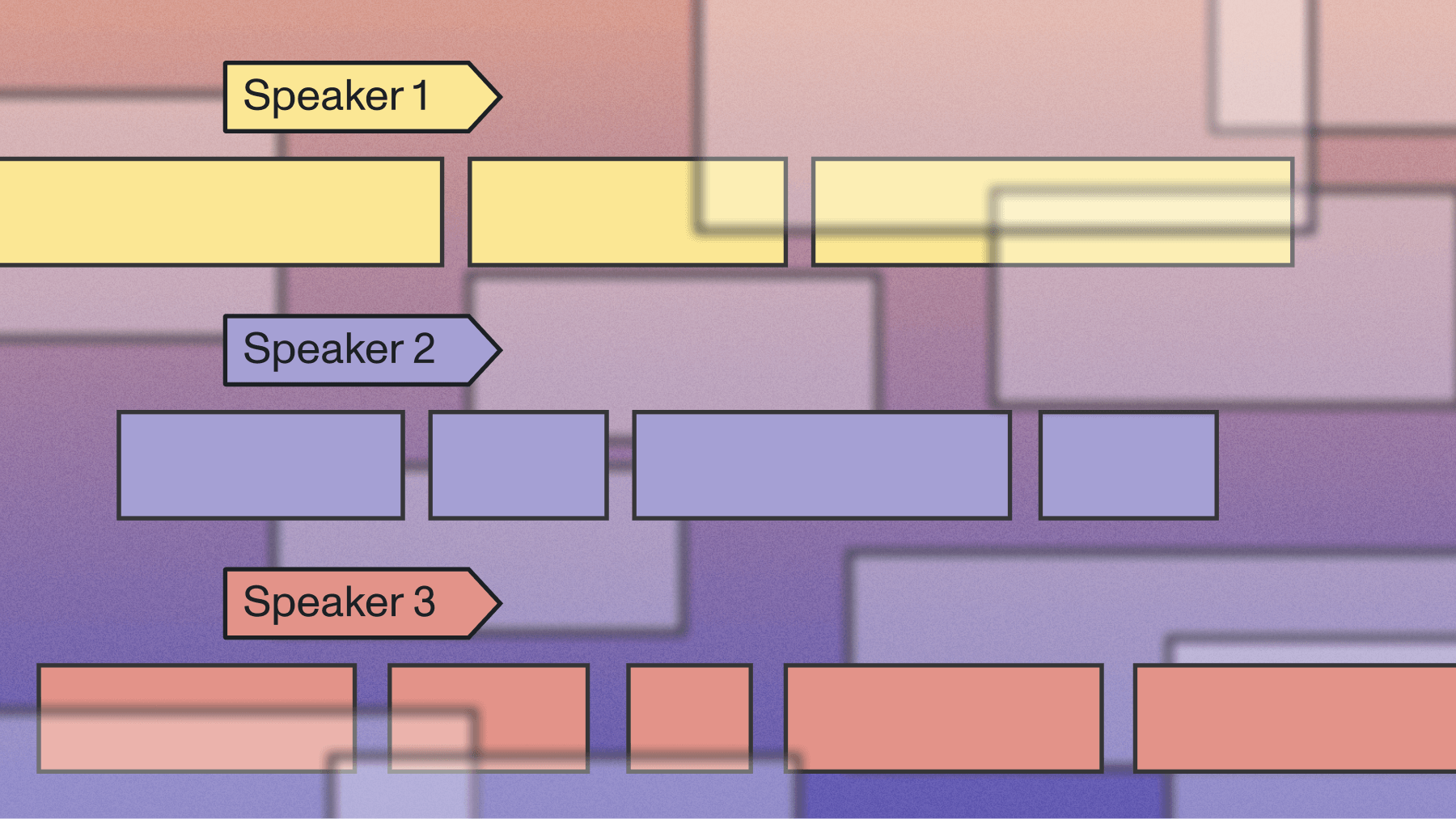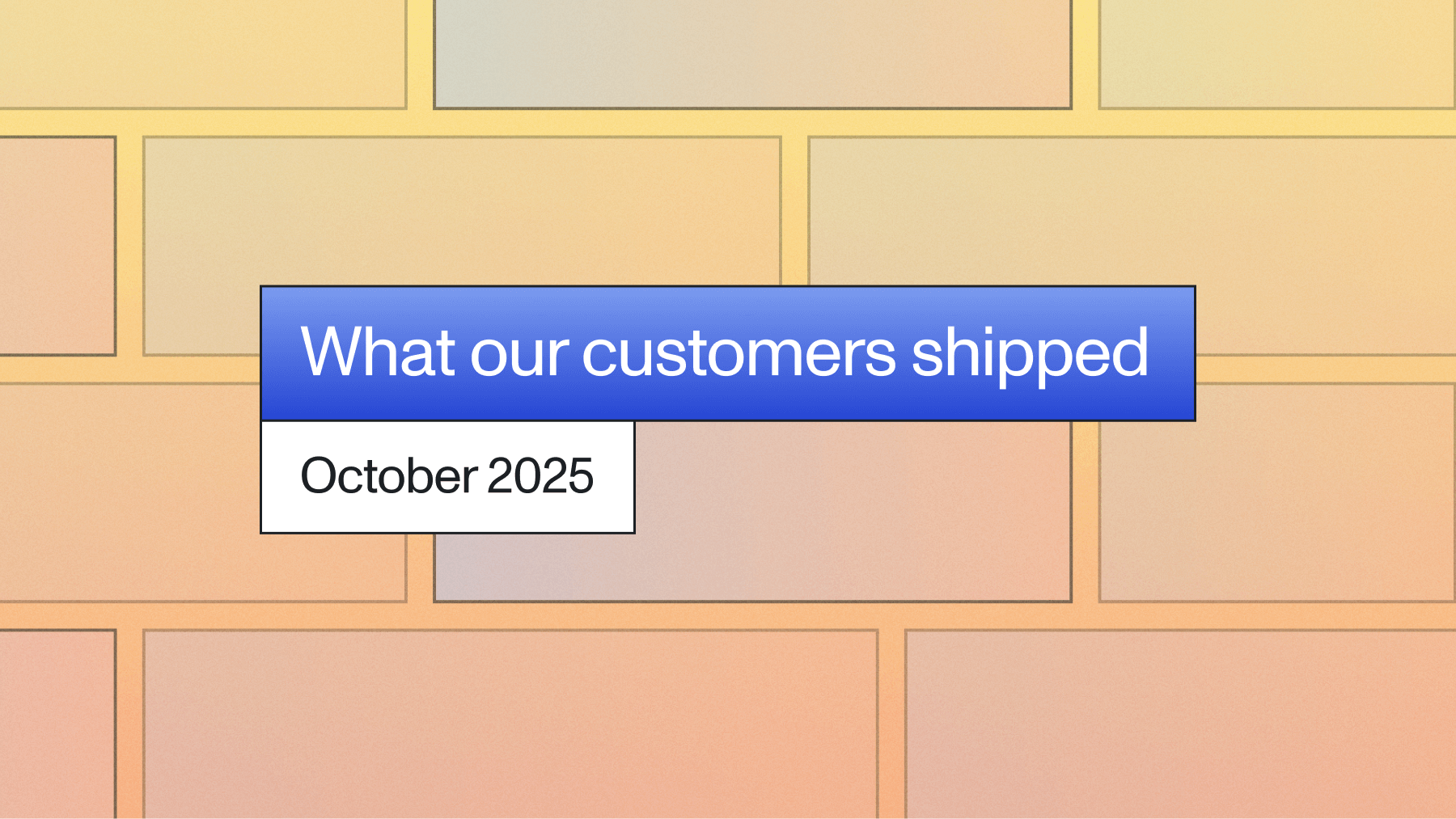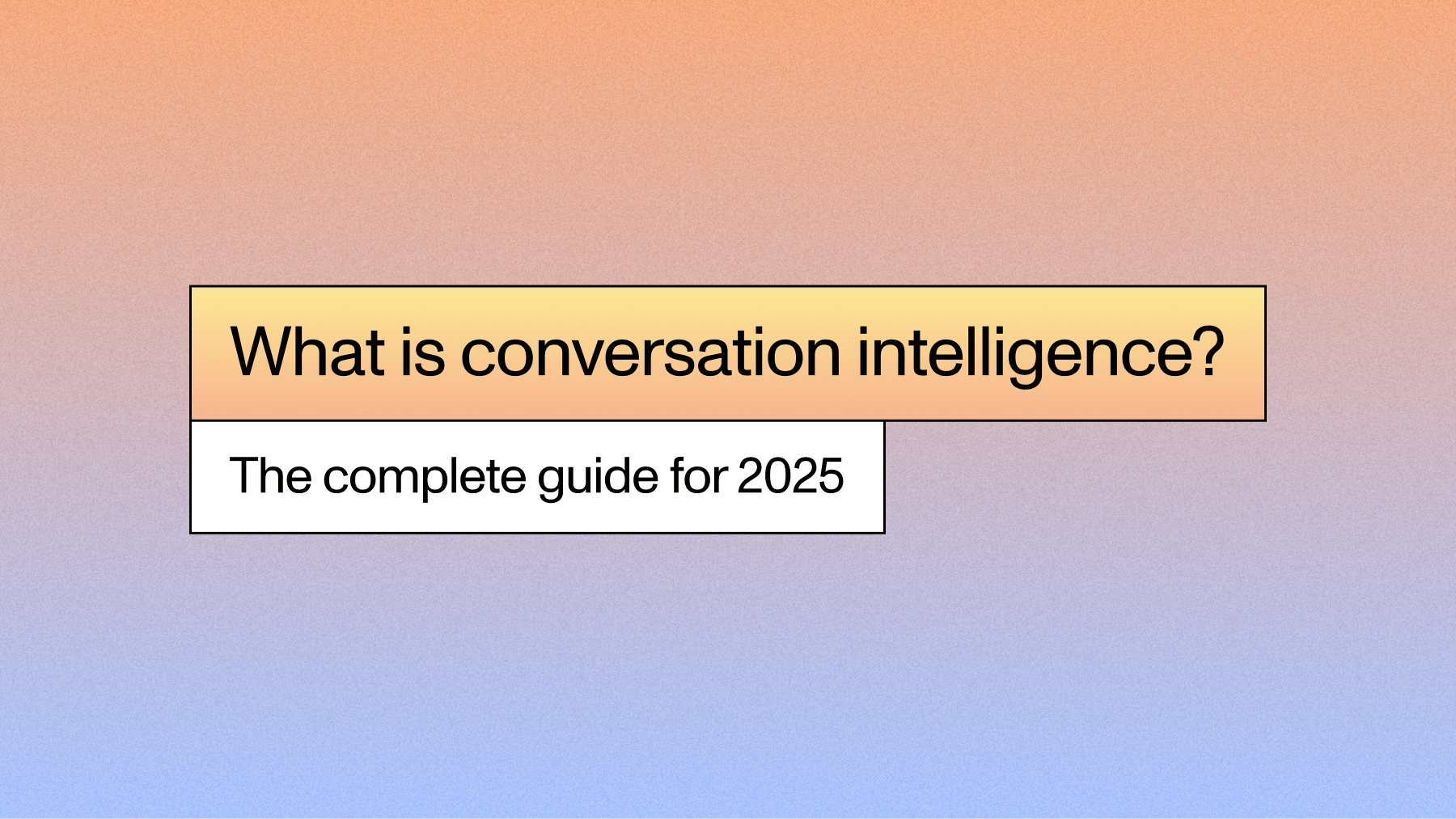Sales coaching software transforms how managers develop their teams by automatically recording and analyzing sales conversations to identify specific coaching opportunities. This guide covers the top platforms in 2025, key features to evaluate, and implementation strategies to help you choose the right solution for improving your team's performance.
What is sales coaching software?
Sales coaching software is a platform that records and analyzes sales conversations to help managers coach their teams better. This means instead of guessing what happened on calls, you get exact transcripts and insights about how your reps perform.
These platforms work by capturing phone calls, video meetings, and emails automatically. They use speech-to-text technology to turn conversations into readable text, then apply AI models to spot coaching opportunities—like when someone talks too much or misses important questions.
The key difference from basic call recording is the analysis layer. While call recorders just store audio files, coaching software tells you specific things like talk ratios, sentiment changes, and whether reps followed your sales process. This transforms random spot-checks into systematic, data-driven coaching.
Modern platforms create structured workflows around these insights. You get scorecard templates for consistent evaluation, libraries of best-practice calls for training, and performance tracking that shows improvement over time.
Key features to look for in sales coaching software
The foundation starts with recording and transcription capabilities. You need multi-channel recording that captures phone calls, video conferences, and screen shares without manual setup. High-accuracy transcription with speaker identification ensures you know exactly who said what during each conversation.
Real-time processing separates good platforms from basic ones. Streaming transcription displays text as people speak, which enables live coaching. Custom vocabulary recognition handles industry-specific terms that generic systems miss.
- Speaker diarization: Separates multiple voices so you know who's talking
- Background noise filtering: Cleans up audio for clearer transcripts
- Custom vocabulary: Learns your product names and industry terms
- Real-time alerts: Notifies managers during calls when coaching is needed
AI-powered coaching insights are what make these platforms valuable. Look for talk ratio analysis that shows if reps dominate conversations or let prospects speak enough. Keyword and topic tracking helps identify when competitors come up or specific products get mentioned.
The AI should detect monologues when someone talks too long, track sentiment shifts during conversations, and identify objection handling moments. Question recognition shows whether reps ask enough discovery questions and how well they respond to customer concerns.
Coaching workflow capabilities determine how insights translate into improvement. Customizable scorecards let you evaluate calls based on your specific methodology. Automated coaching moment identification saves managers from reviewing entire calls by highlighting critical segments.
You also need integration requirements that connect to your existing systems. CRM synchronization with Salesforce or HubSpot ensures call data connects to deal records. Calendar integration automatically captures scheduled meetings without manual intervention.
Test transcription for coaching
Try speech-to-text, speaker diarization, and custom vocabulary on sample calls. See how accuracy drives better coaching insights.
Try playground
How sales coaching software works
Sales coaching software follows a simple four-step process from recording to actionable insights. Understanding this workflow helps you set realistic expectations for what the technology can and can't do.
First, conversation capture connects to your phone system, video conferencing, or calendar to automatically record interactions. Audio streams get compressed and encrypted before uploading to secure cloud storage. Most systems need decent audio quality to work properly.
Second, transcription and analysis convert audio into text using speech-to-text engines. Speaker diarization algorithms separate different voices to show who said what. The transcription process typically completes within minutes after the call ends.
Third, AI-powered insights examine transcripts for patterns and behaviors. The AI identifies talk ratios, question frequency, mentions of competitors, and emotional indicators. Scoring algorithms compare each call against your defined best practices to highlight gaps.
Finally, coaching delivery presents insights through visual reports and trending data. Alert systems notify managers about critical coaching moments requiring immediate attention. Integration with existing workflows ensures insights reach the right people at the right time.
Build coaching features with reliable Speech AI
Get an API key to add transcription, diarization, and AI insights to your product. Start free and scale as you grow.
Get API key
Best sales coaching software platforms
1. Gong
Gong pioneered revenue intelligence by analyzing customer interactions across your entire revenue team. Their platform captures every customer touchpoint and uses proprietary AI models to surface deal risks and coaching opportunities.
The platform excels at connecting conversation data to revenue outcomes. Managers see which talk tracks close deals versus those that sound good but don't convert. Deal intelligence features predict which opportunities will close based on conversation quality.
Gong's "Reality Platform" tracks hundreds of unique data points per call. This includes everything from talk time to specific phrases that correlate with closed deals. The depth of analysis makes it powerful for enterprise teams with complex sales processes.
2. Chorus.ai
Chorus.ai focuses specifically on conversation intelligence for sales teams, with deep Zoom integration since their ZoomInfo acquisition. Their Momentum Insights feature identifies the exact moments that advance or stall deals.
The platform automatically creates highlight reels of best practices from top performers. Relationship mapping shows how deeply reps penetrate accounts by tracking unique speakers over time. Their AI identifies "aha moments" when prospects show genuine interest versus polite engagement.
Chorus works particularly well for teams that do most of their selling through video calls. The Zoom integration captures meetings seamlessly without requiring separate recording setup.
3. Mindtickle
Mindtickle combines sales readiness with conversation intelligence for comprehensive enablement. Their platform includes role-play scenarios, certification programs, and real-call coaching in one system.
The AI-powered role-play feature lets reps practice objection handling before live calls. Their "Call AI" analyzes both practice and real conversations to track skill development. Readiness scores predict which reps are prepared for specific selling situations.
This makes Mindtickle ideal for teams that want training and coaching in one platform. You can see how practice sessions translate to real-world performance.
4. Salesloft
Salesloft embeds conversation intelligence within their sales engagement platform. Their Conversations feature captures and analyzes calls made through the Salesloft dialer plus external calls.
The platform identifies successful patterns across thousands of interactions. Integration with their cadence engine means coaching insights directly influence outreach strategies. Managers see which messaging resonates at each stage of the sales cycle.
If you're already using Salesloft for email sequences and calling, adding their coaching features creates a unified workflow.
5. Revenue.io
Revenue.io provides real-time guidance during live calls using their "Moments" technology. Reps receive on-screen prompts about next best actions while conversations happen.
The platform learns from top performers to guide struggling reps toward better outcomes. Real-time alerts notify managers when calls go off-track so they can join and assist. Post-call analytics show whether reps followed guidance and how it impacted results.
This real-time coaching approach works well for teams that want immediate intervention rather than post-call analysis.
Benefits of sales coaching software for modern sales teams
Sales coaching software delivers measurable performance improvements across key metrics. Companies typically see faster rep ramp time when new hires can learn from recorded best-practice calls. Win rates increase when teams consistently follow proven talk tracks identified through conversation analysis.
Coaching efficiency gains transform how managers spend their time. Instead of sitting on random calls, they receive alerts about specific coaching moments—like when a rep struggles with pricing objections. One manager can effectively coach more reps using AI-identified opportunities versus traditional ride-alongs.
The software provides several key improvements:
- Faster onboarding: New hires learn from best-practice call libraries
- Consistent methodology: Everyone follows the same proven approach
- Objective feedback: Data replaces subjective opinions about performance
- Scalable coaching: Managers can coach larger teams effectively
Data-driven insights replace gut feelings with objective metrics. Managers see exactly which skills need development for each rep rather than guessing based on results alone. Trend analysis reveals whether coaching improves performance over time or if different approaches are needed.
Quality assurance becomes consistent and scalable. Every call gets evaluated against the same criteria instead of random sampling. Regulatory compliance tracking automatically flags violations before they become problems.
How to choose the right sales coaching software
Selecting sales coaching software requires evaluating technical capabilities against your business requirements. Start by defining your accuracy requirements—most platforms achieve good transcription accuracy, but specialized vocabulary might need custom training.
You need to consider several critical factors. Security certifications matter if you handle sensitive customer data. Integration compatibility with your existing tech stack determines how smoothly implementation goes. Scalability for current and projected team size affects long-term costs.
Implementation considerations often determine success more than features. Assess your IT resources for integration work and API customization. Consider change management needs—some teams resist call recording while others embrace the coaching opportunity.
Create a decision framework before vendor demos:
- Define success metrics: Reducing ramp time or improving win rates
- List must-have features: Based on current coaching gaps
- Compare pricing models: Per-user versus usage-based costs
- Plan pilot testing: Select representative team members
Test with a pilot group before full deployment. Select reps who represent different skill levels and territories. Run the pilot for at least 30 days to gather meaningful data. Measure both quantitative results and qualitative feedback about user experience.
The key is matching platform capabilities to your specific coaching challenges rather than choosing based on features alone.
Frequently asked questions
How does Voice AI improve transcription accuracy for sales calls?
Voice AI models trained specifically on sales conversations recognize industry terminology, product names, and sales methodologies that generic transcription systems miss. This specialized training means you get accurate transcripts of what actually happened on calls rather than garbled text full of errors.
What's the typical ROI timeline for sales coaching software?
Most companies see positive ROI within 6-12 months through faster rep onboarding and improved win rates. A team that reduces ramp time by even a few weeks per new hire can save significant productivity costs, not counting the improved performance from better coaching.
Can sales coaching software work with existing phone systems?
Yes, most platforms integrate with popular phone systems like RingCentral, Aircall, and traditional PBX systems through APIs or direct integrations. You'll need to check compatibility with your specific setup, but major platforms support the most common business phone systems.
How long does it take to train AI models on your sales methodology?
Most platforms start providing useful insights immediately using pre-trained models, then improve over 30-60 days as they learn your specific vocabulary and processes. For specialized terms, you can provide a list of keywords and phrases with your transcription request to significantly improve accuracy on domain-specific vocabulary. For enterprise use cases requiring the highest possible accuracy on unique datasets, custom model fine-tuning is available and can be discussed with our sales team.
What happens to call recordings if you cancel your subscription?
Data retention policies vary by vendor, but most allow you to export your recordings and transcripts before cancellation. Some platforms provide 30-90 days to download your data, while others offer longer retention periods. Always clarify data export options before signing contracts.
Title goes here
Lorem ipsum dolor sit amet, consectetur adipiscing elit, sed do eiusmod tempor incididunt ut labore et dolore magna aliqua. Ut enim ad minim veniam, quis nostrud exercitation ullamco laboris nisi ut aliquip ex ea commodo consequat. Duis aute irure dolor in reprehenderit in voluptate velit esse cillum dolore eu fugiat nulla pariatur.




